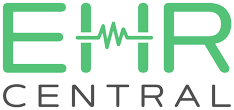Unlocking Financial Health: The Significance of Healthcare RCM Eligibility Verification
In the intricate web of healthcare management, Revenue Cycle Management (RCM) stands as a linchpin for financial stability and efficiency. Within this system, the often-overlooked hero is Eligibility Verification, a process with profound implications for both providers and patients.

Understanding RCM and Its Core Components
Before delving into the importance of Eligibility Verification, let’s grasp the essence of RCM. It encompasses the entire patient journey, from appointment scheduling to claims processing. At its core, RCM aims to optimize revenue generation and streamline financial processes in the healthcare ecosystem.
Why Eligibility Verification Matters
1. Reducing Denials and Errors:
Eligibility Verification acts as a preemptive strike against claim denials. By confirming a patient’s insurance coverage and benefits before services are rendered, healthcare providers can significantly decrease the likelihood of denied claims due to eligibility issues.
2. Enhancing Operational Efficiency:
Efficiency is the heartbeat of any healthcare facility. Verifying eligibility before the patient encounters allows for smoother check-in processes and ensures that the billing department has accurate information from the outset. This not only saves time but also reduces the need for post-service corrections.
3. Ensuring Financial Health for Providers:
In an era where healthcare reimbursement is intricate and tightly regulated, every dollar counts. Proper eligibility verification maximizes the likelihood of receiving timely payments for services rendered. This is paramount for sustaining the financial health of healthcare providers, especially in the face of rising operational costs.
4. Empowering Patients with Transparency:
Eligibility verification is not just a backend process; it extends a hand to patients as well. By communicating insurance details and potential out-of-pocket costs upfront, healthcare providers foster transparency. This empowers patients to make informed decisions about their care and financial commitments.
How EHRCentral enhances your healthcare practice?
The Ever-Evolving Landscape of Healthcare Compliance
Healthcare regulations are in a constant state of flux. Eligibility Verification plays a crucial role in helping providers stay compliant with evolving standards. By staying ahead of regulatory requirements, healthcare organizations can avoid penalties and maintain a solid reputation in the industry.
Conclusion: A Strategic Imperative for Healthcare Providers
In the intricate dance of healthcare finance, the role of Eligibility Verification cannot be overstated. It is not merely a bureaucratic hurdle but a strategic imperative for providers navigating the complex landscape of revenue cycles. By embracing proactive eligibility verification, healthcare organizations can not only ensure financial stability but also provide a seamless experience for their patients.
For healthcare providers, the question is not whether to prioritize eligibility verification but how soon they can integrate and optimize this crucial component within their broader RCM strategy.





